7 Inspiring Women: Amal Nassar
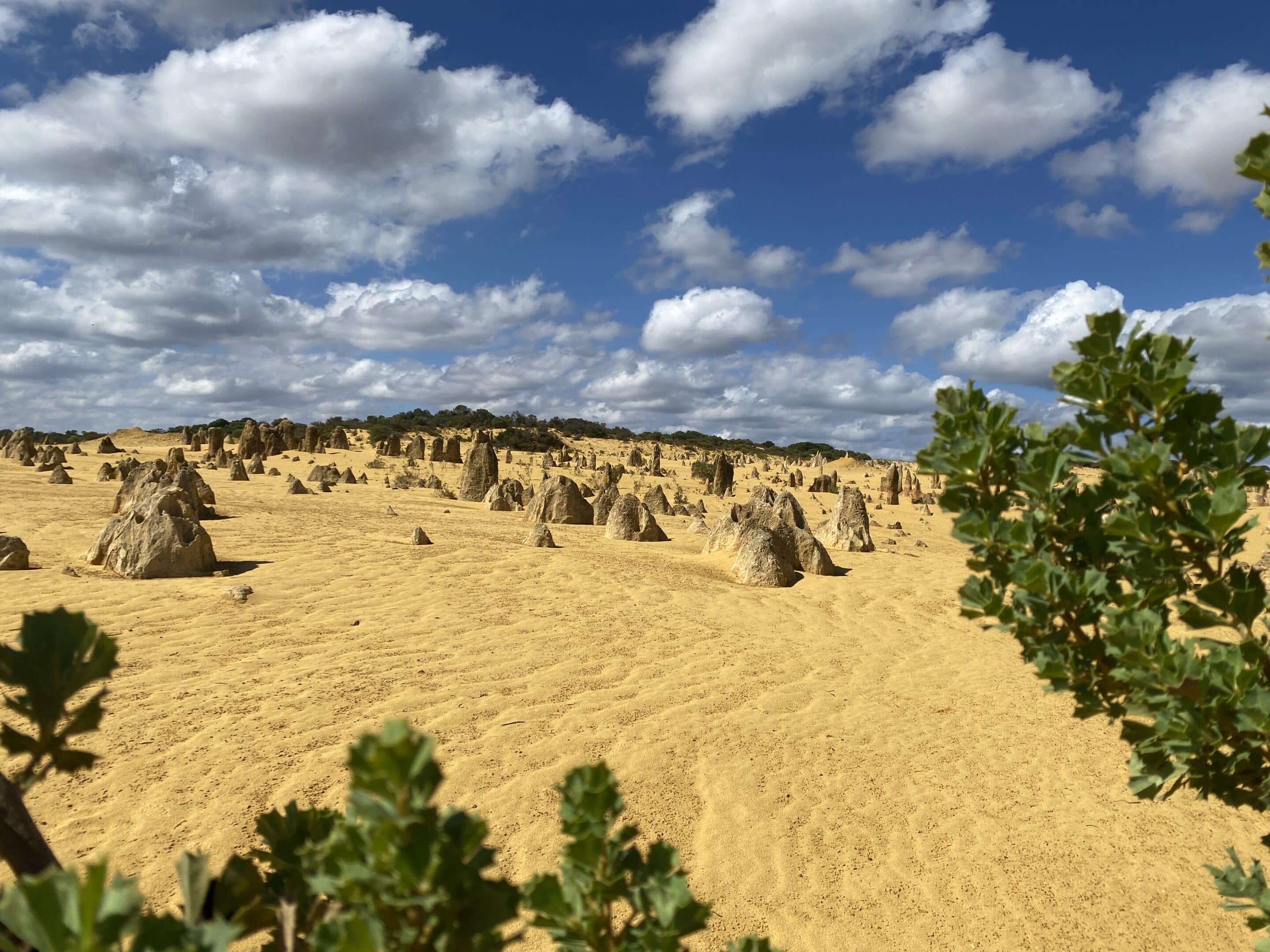
A few years ago, I had the chance to visit The Tent of Nations, which is in the West Bank in the Palestinian Territories. There I met Amal Nassar, a Palestinian Christian committed to nonviolence, peacemaking, and reconciliation.
The Tent of Nations is a family farm, owned by a Palestinian Christian family. Its mission is “to build bridges between people, and between people and the land. We bring different cultures together to develop understanding and promote respect for each other and our shared environment. To realize this mission, we run educational projects at Daher’s Vineyard, our organic farm, located in the hills southwest of Bethlehem, Palestine. Our farm is a center where people from many different countries come together to learn, to share, and to build bridges of understanding and hope.”[1]
I was delighted to talk with Amal Nassar about The Tent of Nations, and record their story and vision.[2] Sitting in one of the beautiful caves on their property, we talked about justice, peace, and reconciliation in Israel-Palestine. 
Covering the walls of the cave are paintings and words about peace and reconciliation (written in many languages). In front of the cave is a large stone that says: “We refuse to be enemies.” It was a moving experience for me.
Amal Nassar and her Palestinian Christian family preach non-violence from their farm in the West Bank. They’ve been battling to hold on to their land, while Israeli settlements encroach (they’ve owned this land in the West Bank for 100 years). Now surrounded by Israeli settlements, the family is a living example of the idea of peaceful resistance.
The BBC recently ran a fascinating piece on The Tent of Nations. Guided by a vision for building bridges between Israelis and Palestinians, and moved by a dream for hope, understanding, reconciliation, dialogue, and peace, Amal Nassar and her family have transformed their West Bank farm into a center for peace-building, non-violent resistance, and Israeli-Palestinian reconciliation, called the Tent of Nations.
In May 2017, Justin Welby, the Archbishop of Canterbury, visited Amal Nassar’s farm and the Tent of Nations, and led prayers at their Mountain Chapel. 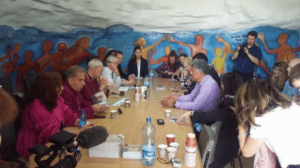
For more than 20 years, Amal and her family have welcomed Israeli students, rabbis, and peace activists, and a host of international guests, and taught Palestinians about non-violence, forgiveness, and the power of love.[3]
Amal Nassar told me a moving story about reconciliation, when I interviewed her. A few years ago, she unexpectedly chanced upon a woman jogging past her farm. The woman was an Israeli settler. The woman said to Amal, “What are you doing out here, in the middle of nowhere?”
Amal replied, “This is my family farm. We’ve lived here for more than 100 years.”
Incredulous, the Israel settler replied, “That’s not true. No-one lives here. This is empty land. Where are the houses and roads?”
“Our homes are built among the caves,” replied Amal, “and all these vineyards you see are ours.”
Over the next twelve months, Amal and this Israeli woman regularly met each other by chance on this lady’s morning runs. Eventually, she agreed to come to Amal’s home for lunch. Her husband strenuously objected; but finally relented. Soon, Amal and this lady became friends.
One day, this lady said to Amal, “It’s my son’s birthday soon, and I’d like to hold the birthday party on your farm, with your family.” Her Israeli settler husband wasn’t happy about holding this party with a Palestinian Christian family on a Palestinian farm, but he eventually agreed.
Over time, the families became close. Through friendship, patience, and understanding, they had moved from enemies to friends.
This is just one example of the reconciling ministry that Amal and her family are involved in. It’s a slow and relational process. It challenges the conflict and division so entrenched in that region. It reconnect people with justice, land, and hope. Here is how Amal and her family describe their vision:
At Tent of Nations, we seek to embody a positive approach to conflict and occupation. Faced with great injustice, we know that we should not hate, despair, or flee. We can refuse to be enemies and channel our pain and frustration into positive actions which will build a better future.
We aim to help the oppressed and marginalized realize that they are powerful. We all have a role in creating the future we want to see. At Tent of Nations, we seek to work with others in the local area to lay the foundations for a future Palestine, in the belief that justice and peace will grow from the bottom up.
We work to reconnect people with the land. Through mixing our hands with the soil, we learn to value and understand the significance of our environment.
Amal Nassar and her family cultivate positive, proactive, and peacemaking approaches to life and conflict. They are peacemakers in a region filled with conflict and injustice. For decades, they’ve opened their home and farm to Palestinians, Israelis, and people from all over the world—inviting these to embrace the message of love and reconciliation.
Students, settlers, rabbis, imams, pastors, peace activists, and a host of international guests, have spent time at this farm discussing pathways to non-violence, forgiveness, and peace. Amal and her family choose to respond to violence in positive ways. They meet violence with love, peace, forgiveness, and embrace.
Committed to breaking the cycle of violence, Amal and her family build bridges, not walls. They bring people together. They know that reconciliation only happens as we address issues of justice and peace. Their lives show the power of relationships to healing conflicts, and to help move toward justice, forgiveness, peace, and reconciliation. They have a simple but powerful mission:
At Tent of Nations, our mission is to build bridges between people, and between people and the land. We bring different cultures together to develop understanding and promote respect for each other and our shared environment.
To realise this mission, we run educational projects at Daher’s Vineyard, our organic farm, located in the hills southwest of Bethlehem, Palestine. Our farm is a center where people from many different countries come together to learn, to share, and to build bridges of understanding and hope.
In my interview with Amal Nassar, she shares at length how her faith in Jesus sustains her in her struggle for peace and reconciliation. It’s an inspiring story of struggle and hope, pain and forgiveness, betrayal and love, occupation and freedom. It’s a story of faith, hope and love lived out in one of the most difficult places in the world. She tells her story here. 
Reconciliation and “love of enemies” is a daily decision for Palestinian Christians. They do it in the power of the Spirit, and by following the life and message of Jesus Christ.
Palestinian Christians like Amal Nassar are models of love, peace, and reconciliation, not only in Israel-Palestine, but throughout the whole world.
Other posts in this series
Graham Hill
Graham Hill (PhD) teaches at Morling College in Sydney, Australia, and is the Founding Director of The GlobalChurch Project – www.theglobalchurchproject.com. He’s the author of “GlobalChurch: Reshaping Our Conversations, Renewing Our Mission, Revitalizing Our Churches” (IVP, 2016), and “Salt, Light, and a City, Second Edition: Ecclesiology for the Global Missional Community: Volume 1, Western Voices (Cascade, 2017).”
© 2017 All rights reserved.
Copying and republishing this article on other Web sites, or in any other place, without written permission is prohibited.
[2] Graham Hill, “Amal Nassar | The Tent of Nations | Reconciliation, Peacemaking, and Building Bridges Between People,” (Video, Study Guides, and Podcast), https://theglobalchurchproject.com/video/amal-nassar-the-tent-of-nations-reconciliation-peacemaking-building-bridges-between-people/
[3] Daniel Silas Adamson, “The Christian Family Refusing to Give Up its Bethlehem Hill Farm,” 18 June 2014, http://www.bbc.com/news/magazine-27883685
Want to get your hands on more, see our subscriptions
Books
Don’t forget to buy Graham Hill’s books:
- Global Church
- Salt, Light, and a City (second edition)
- Healing Our Broken Humanity
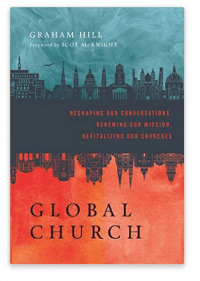
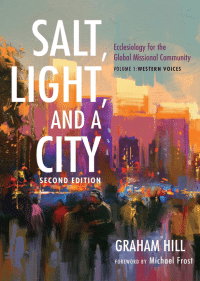
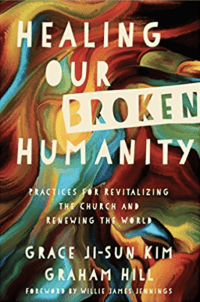
Comments: We’d love to hear your comments and reflections on this blog post!





